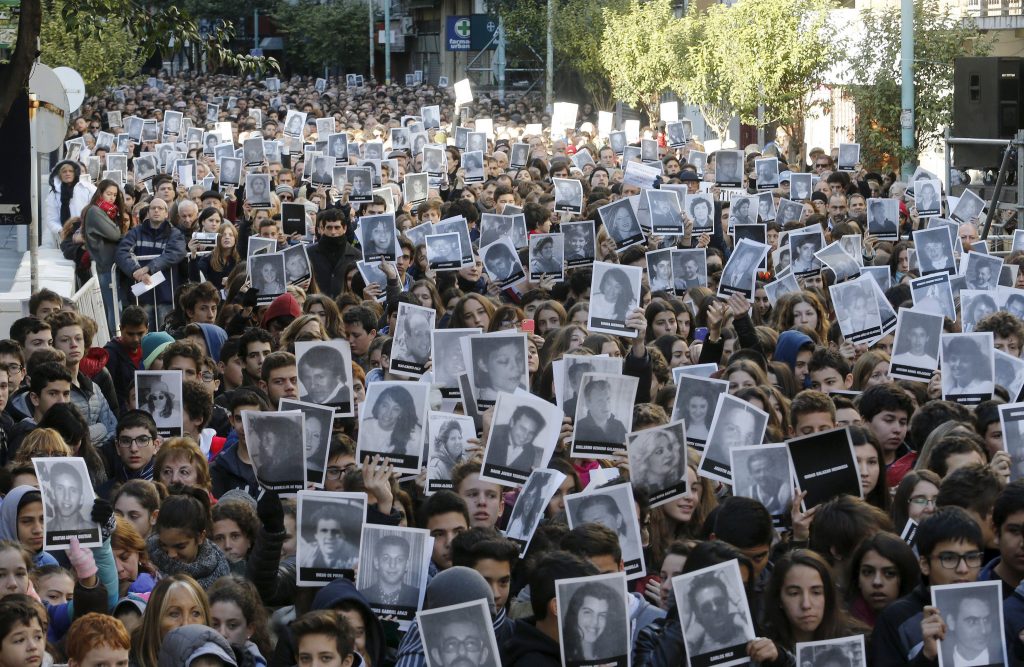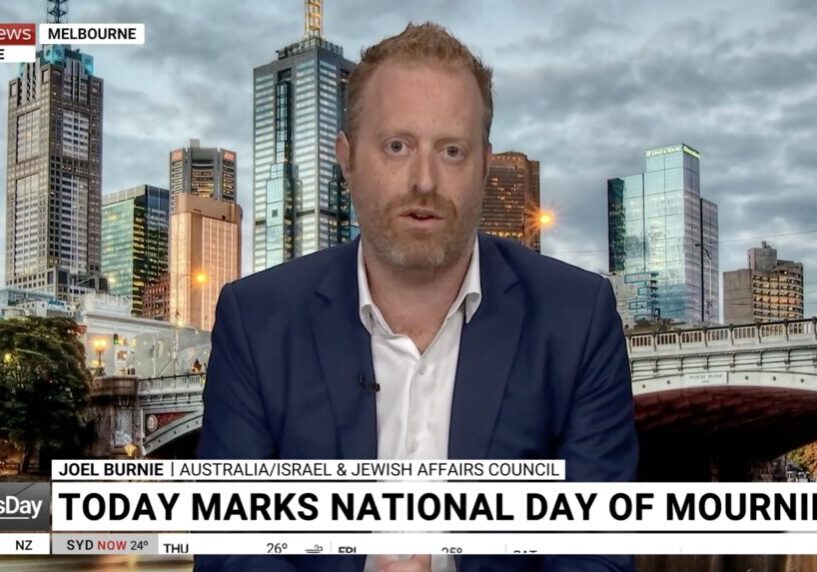Australia/Israel Review, Featured
Editorial: The Lessons of AMIA
Jul 30, 2019 | Colin Rubenstein

If anyone doubted Iran’s extensive and long-standing history of international terrorist activities, they need only look to the bombing of the Argentinian Jewish community centre (Argentine Israelite Mutual Association, known as AMIA) on July 18, 1994 – which killed 85 people and wounded 300.
Together with a delegation from the American Jewish Committee (AJC) led by CEO David Harris, I visited the AMIA building, which has a memorial to those murdered, some years ago. It pains me, like so many others, that on the 25th anniversary of the atrocity, there has still been no justice for the victims.
This is despite the fact that the world knows exactly who was responsible – the Iranian regime in coordination with its terrorist proxy Hezbollah.
Disturbingly, Argentinian officials have been embroiled in repeated cover-ups to conceal the truth about the AMIA bombing.
The first AMIA investigation, set up under former Argentinian President Carlos Menem was discredited after it was exposed as riddled with corruption. The federal judge initially in charge, Juan José Galeano, was sentenced to six years in jail earlier this year for his concealment of evidence in the case. Meanwhile, Menem was named by a former senior Iranian intelligence operative as having been a “paid asset” of the Iranian regime during his term in office, but was recently acquitted of engaging in a cover up of the case.
The reconstituted AMIA investigation, established by the late President Nestor Kirchner in 2004, was led by federal prosecutor Alberto Nisman, both of whom I had the honour of meeting along with AJC colleagues. In 2007, Nisman’s good work led Interpol to issue six arrest warrants for senior Iranian and Hezbollah operatives, but to date, none of the suspects have been arrested or put on trial.
In 2013, Nisman’s detailed indictment revealed that Mohsen Rabbani, the former Iranian cultural attache in Argentina, was a key mastermind of the bombing.
In 2015, Nisman filed a 300-page document accusing then Argentinian President Cristina Fernandez de Kirchner and her Foreign Minister Hector Timerman, among other officials, of deliberately covering up Iran’s role in the AMIA bombing. Nisman discovered that a deal had been negotiated between Iran and Argentina for Teheran to deliver oil to Argentina in exchange for food, weapons and a pledge to convince Interpol to drop the warrants for the AMIA suspects.
On January 18, 2015, the day that Nisman was to share his testimony with the Argentinian Congress, he was found shot dead in his home in suspicious circumstances. Authorities first claimed it to be a suicide but later ruled it a homicide. In another travesty of justice, no one has yet been held responsible for Nisman’s murder.
However, there has been some limited progress.
In 2018, judicial authorities in Argentina announced that former President Cristina Kirchner and 11 former officials will face trial on charges of covering up Iran’s responsibility for the bombing.
In addition, this month, Argentina belatedly designated all of Hezbollah a terrorist organisation and ordered a freeze on the group’s assets.
Earlier this year the UK also banned Hezbollah in its entirety after previously only proscribing its “military wing”.
By contrast, in Australia, we have an even weaker policy of banning only Hezbollah’s “External Security Organisation (ESO)”. A parliamentary committee last year recommended that Australia expand our proscription to all of Hezbollah’s “military wing,” but even that would be inadequate. Hezbollah admits such divisions are artificial – it operates as one organisation, and its political and military “wings” are integral parts of the same terrorist bird!
Hezbollah receives billions in funding from both Iran and the vast international criminal network it operates, including drug trafficking and money laundering, especially in Europe and the Americas.
Recent arrests in the UK, Canada and US demonstrate that Hezbollah has sleeper cells around the world. On July 22, the UK’s Telegraph reported that British intelligence agencies “believe Iran has organised and funded sleeper terror cells across Europe including the UK and could greenlight attacks in response to a conflict in the Gulf.” This follows earlier revelations that a massive cache of explosives linked to Hezbollah had been discovered in London by security agencies in 2015.
For countries, including Australia, to protect themselves against Hezbollah’s vast terrorist and criminal activities, they need to follow the lead of Britain, Argentina, the US, Canada and other democracies and proscribe Hezbollah in its entirety.
Hezbollah is not an independent organisation, but is in reality Iran’s most important international terrorist proxy, trained, armed, paid for and commanded by Iranians.
Hezbollah admits this openly. A Hezbollah commander recently interviewed by The Daily Beast, said the group was ready “to initiate hostilities” against Israel “if and when Tehran deems that necessary.”
The AMIA anniversary should be a reminder of two key lessons. Firstly, AMIA and what has come afterwards shows what happens when the crimes of the ideologically aggressive and expansionist Iranian regime are ignored and allowed to go unpunished. The rogue regime which blew up a Jewish community centre halfway around the world and got away with it is today attacking foreign tankers in the Persian Gulf, breaching the nuclear deal, testing ballistic missiles and continuing to support numerous terrorist groups around the world, while seeking to destabilise and dominate its neighbours.
Secondly, AMIA reminds us how dangerously foolish it would be to allow a regime capable of such an atrocity to ever obtain nuclear weapons.
To counter Iran’s aggression and persuade it to return to negotiations to improve the badly flawed nuclear deal, Australia should be supporting US economic sanctions on Iran and offering resources to the naval coalitions being assembled to protect freedom of navigation in the Persian Gulf. This is firmly in Australia’s national interest given our reliance on a rules-based liberal international order and freedom of navigation. It is also the right thing to do.






